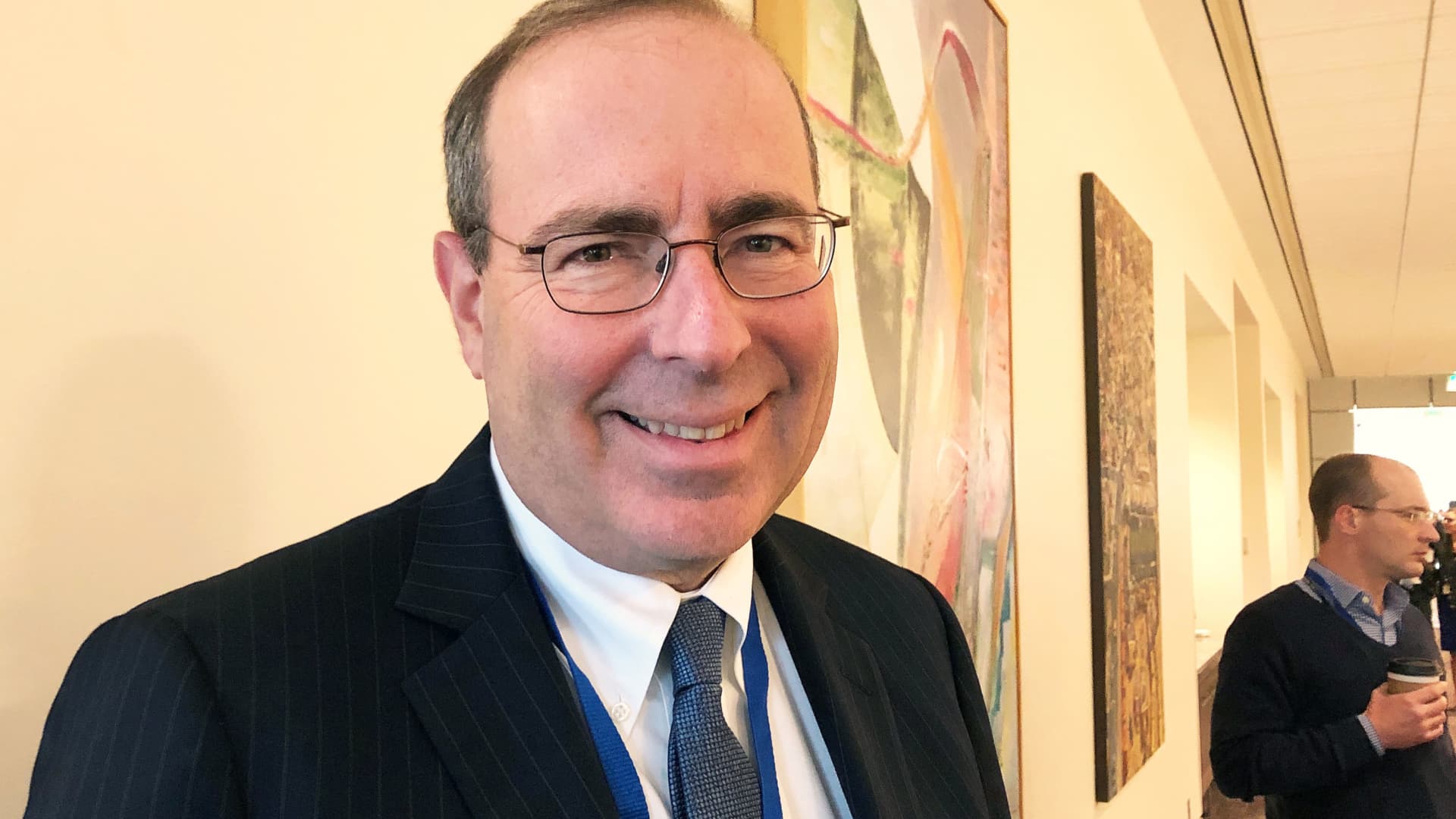Richmond Federal Reserve President Thomas Barkin on Wednesday expressed confidence that the economy is on its way to a soft landing, but obstacles remain that will require caution from him and his fellow policymakers.
While noting progress made on inflation as economic growth has stayed afloat, the central bank official said interest rate hikes remain “on the table” even though Fed officials at their most recent meeting in December indicated that this round of policy tightening is probably over.
“We’re making real progress,” Barkin, a voting member this year on the rate-setting Federal Open Market Committee, said in prepared remarks for a speech in Raleigh, N.C. “Now, everyone is talking about the potential for a soft landing, where inflation completes its journey back to normal levels while the economy stays healthy. And you can see the case for that.”
Inflation by the Fed’s preferred measure of personal consumption expenditures prices rose 2.6% in November from a year ago, and was up 3.2% excluding food and energy. That’s well below its mid-2022 peak but still above the Fed’s 2% target. However, Barkin noted that PCE inflation on a six-month basis is at 1.9%
He compared the Fed’s job to a pilot bringing an airplane in for a landing, and noted four risks ahead: The economy could “run out of fuel” and growth could reverse; “unexpected turbulence” such as geopolitical events or the banking shock that hit in March 2023; the possibility of “approaching the wrong airport,” where inflation holds above the Fed’s 2% target; and a “delayed landing,” where demand holds unexpectedly high, boosting inflation.
“The airport is on the horizon. But landing a plane isn’t easy, especially when the outlook is foggy, and headwinds and tailwinds can affect your course,” Barkin said. “It’s easy to oversteer and do too much or understeer and do too little.”
The speech comes three weeks after the FOMC again decided not to raise interest rates, holding for the third consecutive time.
Along with that decision, committee members penciled in three quarter-percentage point rate cuts in 2024. That’s a less aggressive path than market pricing indicates, but still represents an important policy pivot from a Fed that had hiked 11 times for a total of 5.25 percentage points since March 2022. Market pricing currently indicates six cuts this year, according to the CME Group’s FedWatch gauge of fed funds futures activity.
Barkin didn’t indicate where his “dot” was on the Fed’s closely followed dot-plot matrix of individual members’ rate hikes. However, he noted risks that the central bank’s job bringing down inflation may not be over.
“Longer-term rates have dropped recently, which could stimulate demand in interest-sensitive sectors like housing,” he said. “While you might think this would be a first-class problem, strong demand isn’t the solution to above-target inflation. That’s why the potential for additional rate hikes remains on the table.”
Barkin’s remarks come the same day the FOMC will release minutes from the Dec. 12-13 meeting that should provide more insight into thinking from policymakers on where rates are headed.
